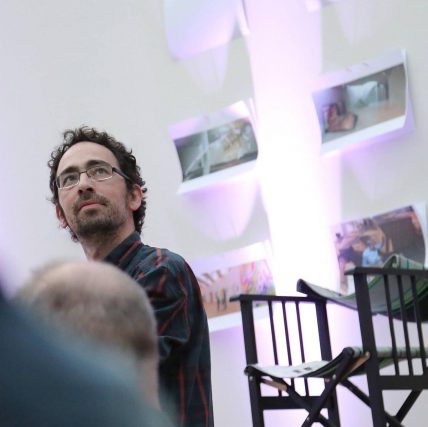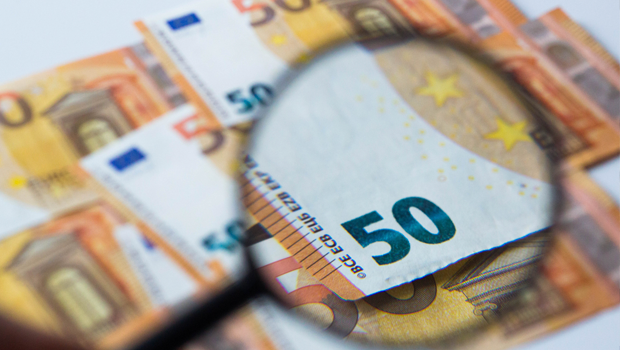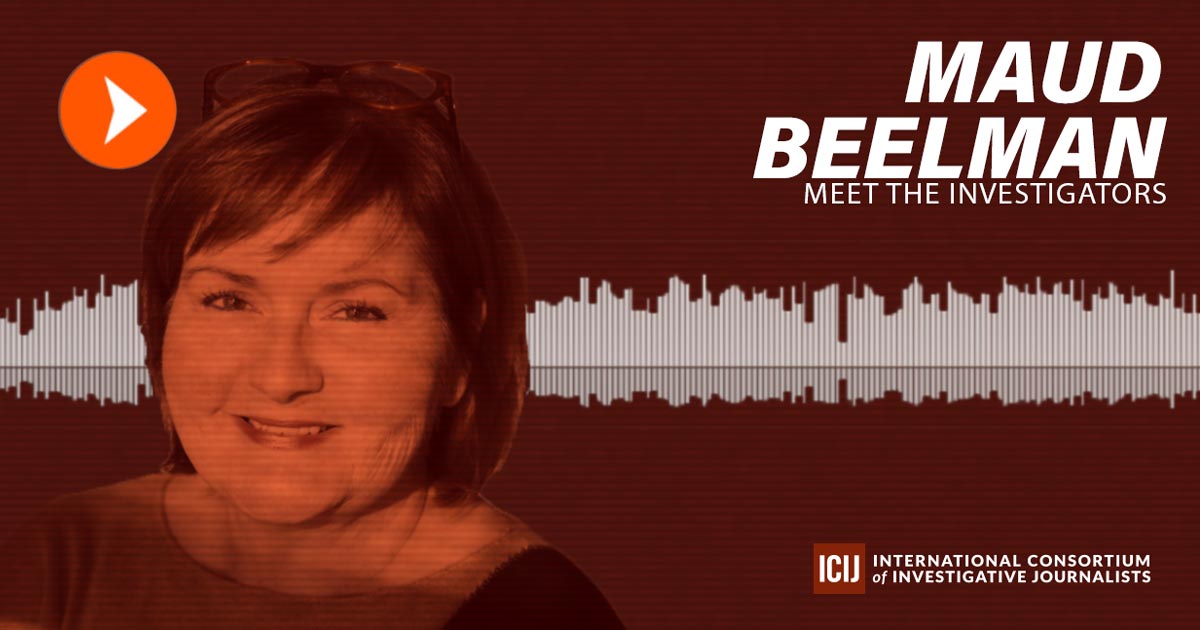MEET THE INVESTIGATORS
Shining a light on a secretive country
ICIJ’s Luxembourg member Luc Caregari knows what it’s like to be an investigative reporter in a secretive country. He talks Lux Leaks and source protection.
The International Consortium of Investigative Journalists collaborates with hundreds of members across the world. Each of these journalists is among the best in his or her country and many have won national and global awards. Our monthly series, Meet the Investigators, highlights the work of these tireless journalists.
This month, Will Fitzgibbon speaks with Luc Caregari from Luxembourg about what it’s like to be an investigative reporter in a very secretive country – a country which was the focus of ICIJ’s Lux Leaks investigation that revealed secret tax deals multinational companies used to slash their global tax bills.
Luc talks about the Lux Leaks whistleblowers and the importance of protecting your sources. And, he’s not too shy to share his favorite (and least favorite) journalism of the moment. We have provided a transcript of the monthly podcast below.
Scilla Alecci: Hi, I’m Scilla Alecci, from the International Consortium of Investigative Journalists.
Welcome to our podcast – Meet the Investigators. In this series we want to tell you about the investigative journalists we work with every day.
Collaboration is at the core of ICIJ’s cross-border investigations. We couldn’t do these projects without the expertise and dedication of our colleagues around the world.
Luc Caregari: It’s some kind of collective intelligence – that’s the most important thing.
Scilla: That’s one of them. This month we’d like you to meet Luc Caregari.
Luc: I’m a journalist in Luxembourg. I’m working for the local newspaper, Woxx – W O X X – which is a small weekly newspaper, small but independent.
Scilla: Luc spoke with ICIJ reporter Will Fitzgibbon.
Will Fitzgibbon: Luc told me he chose this job because he wanted to have an impact with his journalism. But that’s not easy in the Grand Duchy of Luxembourg – one of the world’s premier tax havens.
Luc: The latest scandal is that our Grand Duchess is firing and hiring people at a very high speed, and these decisions must normally be at least green-lighted by the government, but she does not care.
It’s really like a fight for power over the monarchy. It’s funny. Most of the time it’s funny.
Scilla: Monarchy gossip aside. Sure, Luxembourg is in a pretty good spot when it comes to press freedom. But – with a population of only 626,000 – people notice when you start digging around.
Luc: The disadvantage is that most people on earth don’t even know that this country exists. The advantage is you have very short paths sometimes, and if you work as an investigative journalist, you can build up your network really quick.
But one of the problems in Luxembourg is your sources. I mean, it’s source protection. If you’re in such a smaller context, protecting your sources is very difficult, because it’s far more easier to realize who has said what and who had interest to… You see where I want to go there?
Scilla: It was exactly that – source protection – that posed a big challenge just a few years ago.
ADR NEWS: Secret documents from 2002 to 2010. 28,000 pages leaked to the International Consortium of Investigative Journalists.
Scilla: In 2014, an ICIJ investigation based on leaked documents from a big accounting firm exposed secret deals between multinational companies and the Luxembourg administration. The investigation was called Lux Leaks.
FRANCE 24 NEWS: Giants like Apple, Ikea and Amazon obtained so-called tax rulings which allowed them to pay tax rates as low as 1%. The three Frenchmen who leaked the documents revealing the sweetheart deals are now going on trial.
Scilla: In 2018, after a long legal battle the accountant who leaked the documents was acquitted of all charges and recognized as a whistleblower who exposed misconduct.
Will remembers it.
Will: I remember reading about some of the pressure that was put on the whistleblowers and journalists involved in Lux Leaks. What does that tell us about the culture of secrecy in your country and how jealously Luxembourg guards that secret?
Luc: They’re very secretive about business secrets and fiscal secrets. I mean, just to give you an idea: We have a new law on archives, which obligates every ministry to give their archives to the National Archives. The Ministry of Finance didn’t want to go with it.
They said, “No, nobody is ever going to see our archives, that’s a fiscal secret.” And then there has been a lot of tension and now it’s 100 years.
Scilla: You heard it right. Journalists are only allowed to review 100-year old documents from Luxembourg’s Finance Ministry.
Luc: If you want to write something about the 1929 crash, and the impact it had on Luxembourg economics and tax system, you have to wait nine years. You still have to wait nine years, because they don’t want it.
I think Lux Leaks has a bit changed, changed a thing because the first trial was really bitter for Luxembourg and the international image it projected.
Scilla: The trial Luc is talking about was not only against the whistleblowers. In 2015, Luxembourg’s state attorney put lots of pressure on Edouard Perrin, a journalist and ICIJ member who first reported on the Luxembourg tax deals. Initially, he was accused of being an accomplice, but he was later aqcuitted.
Luc: it’s difficult to, to keep up against them, but they know now that they’re being watched
Scilla: Since Lux Leaks there has been renewed scrutiny on Luxembourg’s tax avoidance schemes. But still today the country is considered a tax haven for its financial secrecy.
And many of Luc’s investigations inevitably focus on that.

Luc: Maybe not everything leads back to the tax haven aspect of Luxembourg, but a lot of things do. And it’s something that’s not in the picture of the lets call it ‘mainstream media.’
Luxembourg in financial place – is complex. The tax aspect is only one of them. Some aspects are not really harmful.
Yes, it’s a place in Central Europe. Yes, it’s made for rich people.
We have been observing the last 20 years that the gentrification of Luxembourg is rapid and it’s enormous and it’s not stopping. I mean, there have been lots of efforts made to attract so-called “HNWIs”– high net worth individuals. We have let the Qatari’s in; we are a biggest place outside of China for trading in renminbi, the Chinese currency.
Scilla: In recent years, tax justice activists and journalists – just like us, at ICIJ – have paid increasing attention to the harmful effects of tax evasion and financial secrecy.
VARIOUS NEWS CASTS: Tax is the lifeblood of democracy. Reforms like beneficial ownership are really critical… hidden deep within shell companies and anonymous entities… the very secrecy of this world allows you to misuse it.
Scilla: As a result of those battles, some tax havens like Luxembourg are slowly becoming less opaque. A new national database now allows people to search for information on companies based in the country.
Luc: It’s been quite a fight to get through it, because now the beneficial owners of structures or financial structures have to be identified and there’s a fine that goes up to 1 million euros and that was a big step, on one hand.
But you still have to know what you’re looking for, you cannot enter just a name in the database and then get all the files linked in it.
Scilla: So, Luxembourg and other countries might let you search for the company name if you happen to already know it, but that doesn’t mean you can search for the true owners of that company.
To give you an example, the database even helped us with our recent investigation into the business empire of Isabel dos Santos – the billionaire daughter of Angola’s former president.
Luc: We could identify Sindika Dokolo as the owner of De Grisogono.
Scilla: We knew the name of a jewelry company that had links to dos Santos, its name was De Grisogono. We found it in the registry and the attached documents allowed us to confirm that her husband, Sindika Dokolo, was indeed its owner.
But without knowing the company’s name we would have never found him and the link to millions of dollars from the Angolan state.
Scilla: Last year, Luc used that tiny bit of information that the registry provides to look into the activities of Airbnb, the home-sharing site.
Luc: I had been reading a story in a Vienna newspaper where they put it all in infographics how Airbnb had changed the living conditions in Vienna and how the Vienna city government was facing it. And then I said to myself, “whoa, what about Luxembourg?” I mean, we have real housing problems here because the prices are extraordinarily high. I mean, you can buy, like, a flat in Luxembourg City — a small flat with one room is now 1 million euros. That’s, just count it in dollars, it’s really, it’s really totally, totally sick.
And why aren’t they doing anything against it? And so once I started looking around for answers, phoning around, and then someone told me, “just go on the business registry and type in Airbnb.”
Well I discovered why the Luxembourgian government was so not harsh on Airbnb. The link is very simple: Airbnb has their accountant center in Luxembourg.
The Luxembourgian government has been on a shopping tour in Silicon Valley, and they attracted it to Luxembourg for obvious tax reasons.
Scilla: Luc found that at least a hundred homeowners should have requested a business license in order to rent out their property on Airbnb.
But many were able to take advantage of the government’s lax controls and avoided paying taxes on their renting business in Luxembourg.
Will: What kind of reactions did you get from the government, or from Airbnb?
Luc: From Airbnb, none.
It has even generated a parliamentary question – the question to the government from Parliament. The answer has been a deception, as always, as always in Europe: we are waiting for European solution, we can’t do this on our own.
That’s the issue – always, if they don’t want to really tackle a problem, that’s the standard answer: we have to wait for European solution.
Scilla: Despite the mild reaction to the story, Luc learned two important lessons while reporting and he shared them with us.
Luc: First, protect your sources. Always. You have to protect them from being found out. That’s something I learned in witnessing the Lux Leaks process.
And then second of all, yeah – don’t be afraid to think out of the box. Don’t be afraid to search for fallings nobody has seen and don’t be afraid to, to get lost sometimes.
Or to admit that you were looking for something that wasn’t there. That’s also possible.
Scilla: And this leads to the final part of our podcast, where we ask our guests if there’s a recent piece of journalism they loved… or hated:
Luc: It’s from the Institute of New Economic Thinking, by Lynn Paramorre: “Meet the Hidden Architect Behind America’s Racist Economics.”
It’s not really an investigation, but I think that’s also very important to read things like that, not only to get the bigger picture, but to get your picture bigger.
Will: Exactly.
Luc: Then, I watched the Jeffrey Epstein documentary on Netflix and it was really not good.
Only if you want to say, “This is a bad investigation,” then look at it, it could be an example for that, because lots of promises and then there’s nothing really behind it, and you see the leads they could have followed and they don’t do it. I was really like, “Oh my god.”
Scilla: Well I haven’t watched it, yet. But now I’m curious. There’s always something to learn after all.
That’s it for this month’s episode of our Meet the Investigators podcast. I hope you enjoyed it.
The episode was produced by Amy Wilson-Chapman, Will Fitzgibbon, Carmen Molina Acosta and me, Scilla Alecci.
Please send us your feedback at social@icij.org and – don’t forget to tell your friends! If you can, please share it on social media and use the hashtag #MeetTheInvestigators!.
Thanks for listening! Ciao!


